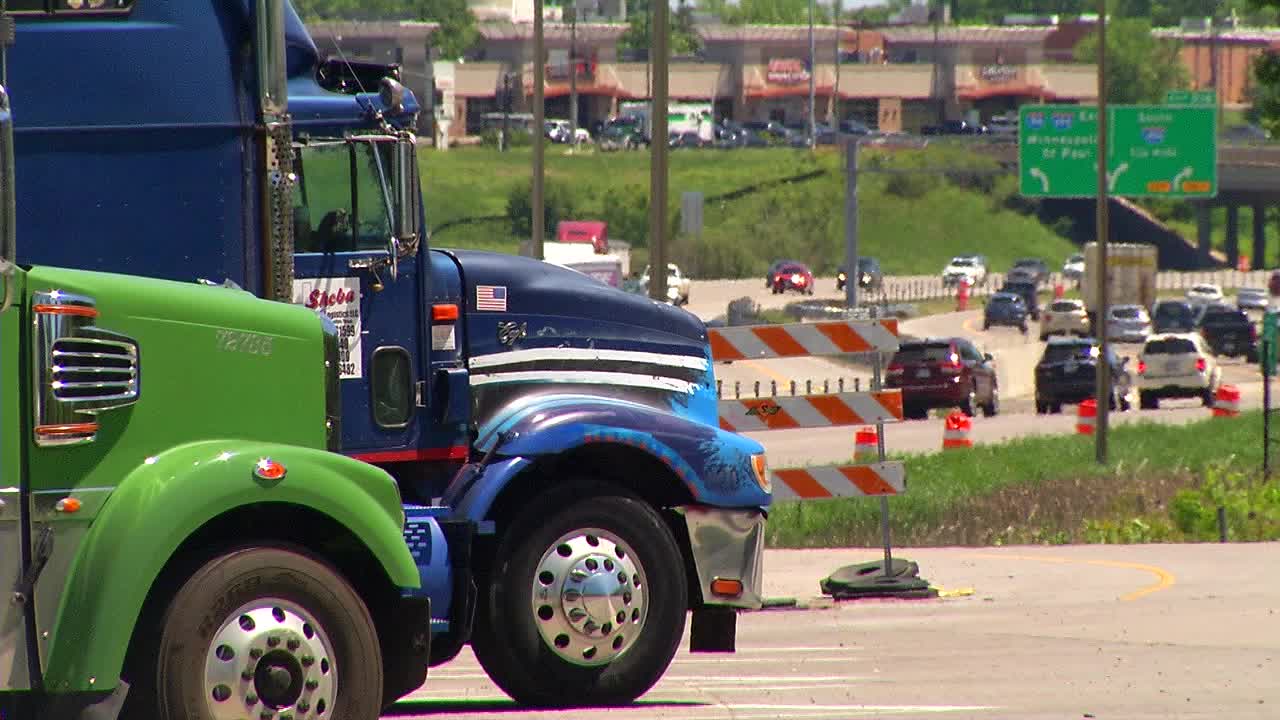Rising diesel prices hit truckers and transportation companies
[anvplayer video=”5113431″ station=”998122″]
The cost of diesel continues to rise and it’s impacting everyone from truckers to consumers.
The national average for a gallon of diesel is at $5.60, according to AAA.
In Minnesota, the price of diesel is $5.30, which is $2 more expensive from this time last year.
Truckers are experiencing the pain at the pump firsthand.
“I like to do things my own way. I like to be my own boss,” Robert Dotson, a truck driver, said.
Calling the shots on the open road with his best friend, Dotson said it’s the reason why he started driving trucks at 18.
He said it’s the first time he’s seen diesel prices this high.
To travel from Washington to Minnesota, the cost was $1,600. Before the price of diesel spiked, he said the cost was half of that.
“They said they’re going to fix the pump so it goes over 1000 because right now at 999 it stops because the pumps aren’t fixed for a four digit number,” Dotson said.
Diesel is the second largest cost in the industry.
“Minnesota runs on trucking, trucks run on diesel and when diesel was at high prices, everybody is affected from small fleets to consumers,” John Hausladen, Minnesota Trucking Association president, said.
Hausladen said the smaller fleets and independent drivers are being hit the hardest.
“These are frontline workers. Their job is not going away, but it does get to, ‘can my business sustain these high prices?'” he said.
Finding diesel is not the issue, there’s enough to go around.

Trucks parked at a gas station (KSTP).
Hausladen said the demand is soaring and it’s driving up prices.
“When you have other countries demanding and maybe willing to pay a higher price, it gets shipped offshore. It raises our costs,” he said.
But at the end of the day, he explained everyone is paying for the high price of diesel.
“Transportation costs are baked into everything. So when you buy a product at a store, transportation is one of those fees,” he said. “When that goes up, the end price goes up to every consumer.”
This comes as the trucking industry is still facing a worker shortage.
Experts explained the delivery may be slower than usual, but the wheels will keep rolling.